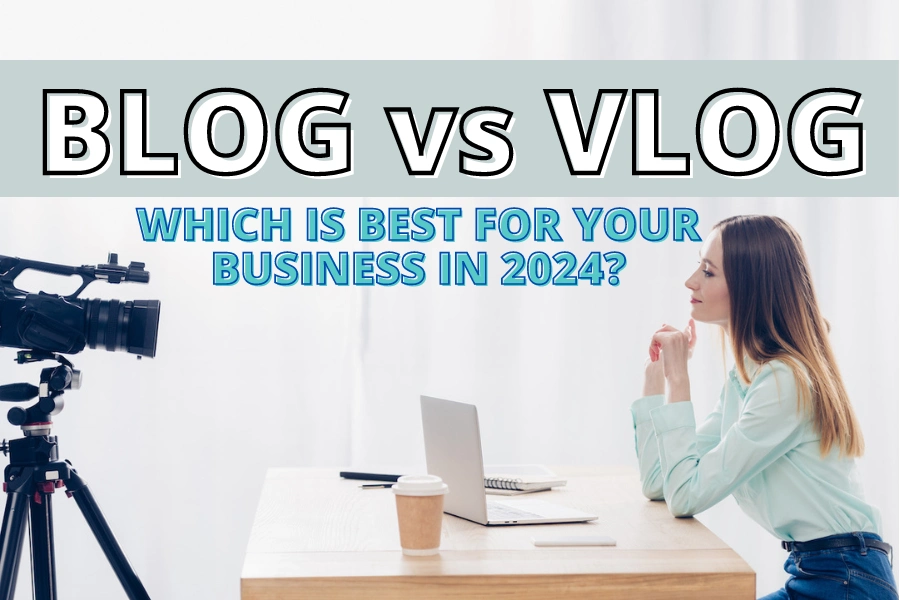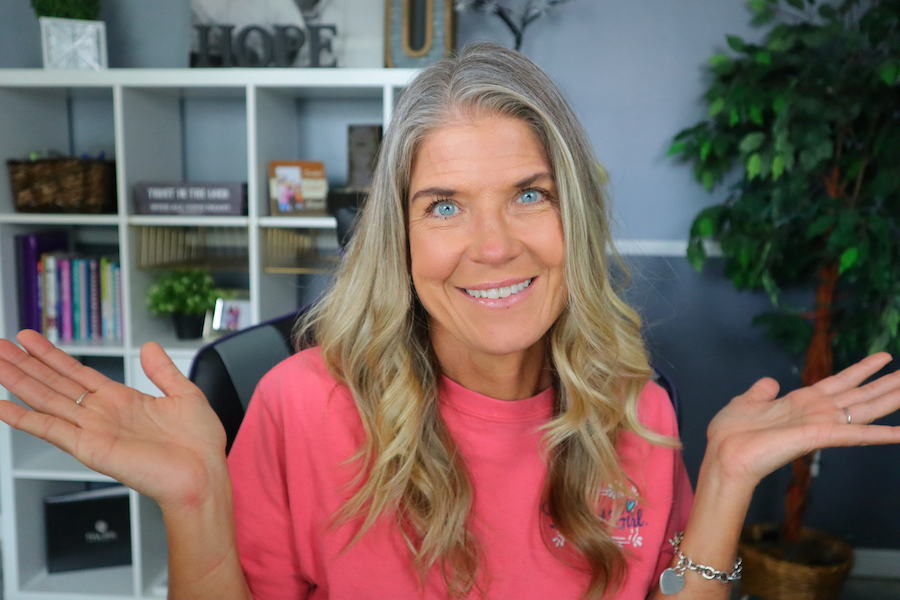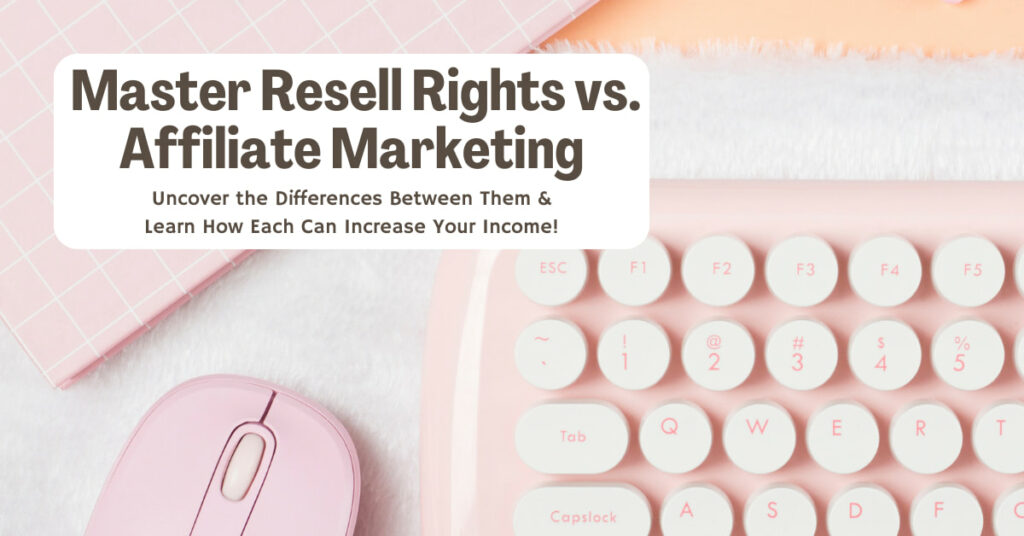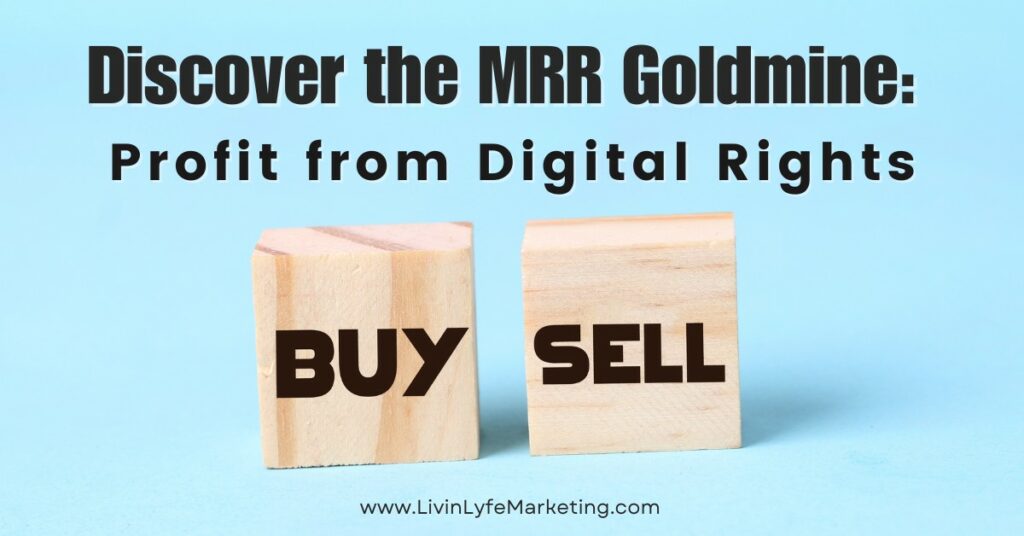Blog vs Vlog: A Straight Forward No-fluff Guide for Beginners
In today’s digital age, the world of content creation offers a plethora of opportunities. Two of the most popular mediums are blogs and vlogs.
If you’ve been wondering which one is going to be best for your online business, blog vs vlog, then you’ve come to the right place.
Let’s dive right in!

This post may contain affiliate links, which means I’ll receive a commission if you purchase through my link, at no extra cost to you. Please read full disclosure here.
Let’s start with the difference between a blog and vlog?
The main difference is in the delivery of the content, one is through text (blog), the other through video (vlog).
A blog is an online platform where individuals or organizations share written content on various topics.
It can range from personal experiences, professional insights, to tutorials, and more.
There are many platforms to house your blog but the 2 most popular are WordPress and Blogger.
On the other hand, a vlog is a video blog.
Instead of written content, vloggers share their stories, insights, and information through videos.
Platforms like YouTube and Vimeo are popular for vlog content.
While both blogs and vlogs serve as different ways for sharing content, they cater to different types of audiences.
For some people they prefer reading in-depth articles, such as this one 😉, at their own pace, making blog posts ideal for them.
On the other hand, those like myself, enjoy visual content and dynamic storytelling and we gravitate towards vlogs.
Here’s a quick overview of the differences between the two:
| Type | Blog | Vlog |
|---|---|---|
| Delivered In | Written content | Video content |
| Platform | Websites like WordPress, Blogger, Medium | Video platforms like YouTube, Vimeo, TikTok |
| Engagement | Comments, shares, likes | Comments, likes, shares, subscribes |
| Equipment | Computer, writing tools | Camera, microphone, video editing software |
| Skill Set | Writing, SEO, web design | Video editing, on-camera presence |
| Monetization | AdSense, affiliate marketing, sponsored posts | Video ads, sponsorships, merchandise sales |
| Accessibility | Easily indexed by search engines | Requires platforms for visibility |
| Content Lifespan | Longer-lasting, evergreen content | Trend-driven, but can have evergreen content |
| Interaction | Primarily through written responses | Visual and auditory engagement |
| Flexibility | Can be consumed at reader’s pace | Typically consumed in real-time |
Quick History Lesson on Blogging
With pioneers like Justin Hall & Dave Winer, writing their diaries of their thoughts and daily activities, in the early days of the Internet, the whole world was able to read them.
These “weblogs,” a term later shortened to “blogs,” were pretty basic with just plain text on the screen that you could scroll through.
In the mid to late 90s you started seeing platforms like Blogger come on the scene.
This allowed for those that were tech challenged be able to share their thoughts and experiences online.
Blogging’s Golden Era
Remember 1999 when the world was going to crash and burn.
Yeah, well that didn’t happen but blogs started becoming a big thing when HuffPost, TechCrunch, and Mashable, took it to a whole new level by blogging about news, expert insights, and different content than just diaries.
As the 2000s progressed, the term “blogger” transformed from representing hobbyists to professionals, with many making money from their personal blogs through ads, sponsored content, and affiliate marketing.
Modern-Day Blogging Landscape
Today’s blogging world is a rich tapestry of voices, topics, and formats.
The introduction of microblogging platforms like Twitter brought forth bite-sized, real-time content sharing.
Meanwhile, traditional blogs embraced multimedia elements, from videos to interactive infographics, making the user experience that much better.
History lesson on Vlogging
Vlogging, or video blogging, traces its origins to the early 2000s when individuals began sharing video content online.
These early vlogs were often personal in nature, much like their written counterparts, capturing moments from daily life.
Platforms like YouTube, launched in 2005, played a pivotal role in popularizing vlogging, offering a user-friendly space for creators to upload and share their videos with a global audience.
History Lesson on Vlogging
Vlogging, or video blogging, traces its origins to the early 2000s when individuals began sharing video content online.
These early vlogs were often personal in nature, much like their written counterparts, capturing moments from daily life.
Platforms like YouTube, launched in 2005, played a pivotal role in popularizing vlogging, offering a user-friendly space for creators to upload and share their videos with a global audience.
Vlogging’s Rise
As internet speeds improved and camera technology became more accessible, vlogging saw a surge in popularity.
Creators began exploring diverse content, from travel diaries and tutorials to reviews and challenges.
The late 2000s and early 2010s marked the emergence of vlogging superstars, individuals who amassed massive followings and turned their passion into lucrative careers.
This era also saw brands recognizing the influence of vloggers, leading to collaborations and sponsorships.
The Modern Vlogging Landscape
Today, vlogging is a multifaceted medium with platforms like TikTok and Instagram’s IGTV offering alternatives to YouTube’s longer-form content.
Vloggers now cater to niche audiences, producing content on specific topics, and often integrating high-quality production values.
The rise of live streaming and interactive vlogging has further diversified the landscape, ensuring that vlogging remains a dynamic and influential form of digital expression.
RELATED POST:
What is a Blog and How Does it Work
Do you make more money blogging or vlogging?
Both blogging and vlogging offer various opportunities to make money.
Bloggers can earn through affiliate marketing, sponsored posts, AdSense, and selling products or services.
Vloggers, on the other hand, can earn through video advertisements, brand collaborations, and merchandise sales.
According to data from ZipRecruiter, the average amount earned by a YouTuber is $60,000 per year, while bloggers make an average of $45,000 per year.
However, it’s essential to note that these figures can vary based on factors like niche, type of content you’re blogging about, audience size, and engagement.
For instance, a blogger with a niche audience might earn quite a big through affiliate marketing if their audience is highly engaged and trusts their recommendations.
Similarly, a vlogger who might have a YouTube Channel with a vast subscriber base might earn a substantial amount through ad revenue alone.
It’s essential to understand that both platforms require time, effort, and consistency before they start generating significant income.
You might be asking, “Does anyone still read blogs?”
Absolutely!
I mean you’re reading one right now. 😉
While video content has seen a surge in popularity, written content remains a staple in the digital world.
According to WordPress, 77 million new comments are posted to blogs every month. This means that people are finding these blogs and engaging with the content.
Blogs remain a trusted source of information for many.
They offer the advantage of deep dives into topics, providing detailed explanations, tutorials, and insights that might be challenging to convey through video content alone.
Moreover, blogs are easily shareable and can be revisited multiple times, making them a valuable resource.
Believe it or not, blogging is the #1 thing I did to rank my clients sites as well as my own.
Whether they were a national company or a local company, blogging is one of the best ways to get Google to notice your content so it can rank.
The advantages and disadvantages of starting a blog
As with any online business venture you’re going to have those advantage and disadvantages that you have to weigh. These are just some that I, and many other bloggers have run into while on our journeys.
Advantages:
Flexibility: You can write whenever your heart desires. Morning, noon, or midnight, whenever that brain of yours is more focused. 😉
Low Startup Cost: Your domain name and hosting will be the biggest cost and that is usually only like $100 per YEAR .
SEO Benefits: Write an article, rank it, and benefit from the FREE traffic for years.
Passive Income: Through affiliate links and ads you place on your blogs.
Authority Building: By regularly posting your amazing content people will come to know you as the authority in your niche. You’ll be the GO TO person! 💥
Networking: Blogging can open doors to collaborations, guest posting, and other opportunities.
Disadvantages:
Time-Consuming: Writing quality content takes time.
High Competition: Depending on what niche you have chosen it may take a while to stand out.
Requires Regular Updates: To keep readers engaged and attract new ones you need to blog regularly. It’s all about that consistency.
Technical Challenges: Managing a website might require dealing with technical issues from time to time.
Slow Growth: It might take time before you see substantial traffic and engagement.
How Do Beginners Start Blogging?
Starting a new blog can be an exciting journey, allowing you to share your passion, interests, and experiences with people all over the world.
If you’re considering starting a journey down the blogging road, here’s step-by-step guide to help you get started:
Choose a Specific Topic: Before you begin, it’s essential to decide on a specific topic or niche for your blog.
Whether it’s travel, cooking, technology, or personal development, choose something you’re passionate about and knowledgeable in.
You’ll also want to decide if your online business will be niched down or will you be branding yourself.
Select a Domain Name: Your domain name is your blog’s address on the internet. It should be memorable, relevant to your topic, and easy to type.
If you’re unsure about which domain name to choose, check out the recommendations on this page for some great options.
Pick a Hosting Provider: To have your own website, you’ll need a hosting provider. This service will store your blog’s files and make them accessible to visitors.
Again, you can find top recommendations for hosting providers on this page.
Design Your Blog: With numerous themes for WordPress, you can easily design a professional-looking blog without any coding knowledge.
Some platforms might be a better option for beginners due to their user-friendly interfaces.
Hone Your Writing Skills: While you don’t need to be a professional writer to start a blog, improving your writing skills can enhance the quality of your content.
Consider taking online courses or reading books on writing to refine your craft.
Create Valuable Content: Once your blog is set up, start creating content that offers value to your readers. Whether it’s informative articles, how-to guides, or personal stories, ensure your content is engaging and relevant to your chosen topic.
Promote Your Blog: Share your posts on social media, engage with readers in the comments section, and consider using search engine optimization (SEO) techniques to increase your blog’s visibility.
Invest in Essential Tools: As you delve deeper into blogging, you’ll realize the importance of certain tools, from SEO plugins to graphic design software.
Explore the recommendations on this page to find the tools that can elevate your blogging game.
Starting a new blog might seem daunting initially, but with the right guidance, tools, and passion, it can be a rewarding experience.
Remember to stay consistent, engage with your audience, and continually seek ways to improve and grow.
Oh, and the biggest piece of advice I can give you…GIVE YOURSELF GRACE!
Everyone started as a beginner and slowly worked their way up. Keep your head down and only compare yourself to you a month ago.
Best Blogging Platforms for Beginners
Choosing the right platform is crucial for building a business around blogging.
Here are some of the top blogging platforms with the #1 is the BEST one:
WordPress.org: If you are serious about blogging and building an online business then WordPress is the only way to go.
Your own self hosted website with WordPress is the gold standard of blogging platforms, WordPress.org offers immense flexibility and customization.
It’s an open-source platform, meaning you host it on your own server. With thousands of themes and plugins to choose from it is great for both beginners and advanced users.
Blogger: Owned by Google, Blogger is one of the oldest blogging platforms. It’s free, easy to use, and offers the reliability of Google’s infrastructure. This is great if you
Wix: A drag-and-drop website builder, Wix is not just for blogging. However, its user-friendly interface and customizable templates make it a popular choice for bloggers.
Squarespace: Known for its stunning design templates, Squarespace is a paid platform that offers a range of features, including e-commerce, making it suitable for businesses and individual bloggers alike.
Each of these platforms offers unique features and advantages. When choosing a platform, consider your blogging goals, technical expertise, and the kind of audience you aim to reach.
Is YouTube considered a vlog?
YouTube, while often associated with vlogging, is not a vlog in itself.
Instead, it’s a platform that hosts vlogs.
Vlogs, or “video blogs,” are content pieces where individuals discuss a particular topic, share insights, or capture moments from their lives in the form of short videos.
In the debate of blogging vs vlogging, YouTube stands out as the premier platform for the latter, offering creators a space to share their video content with a global audience.
Over the years, YouTube has introduced features that allow vloggers to connect with their viewers in different ways, from Live Streaming to the Community tab.
These tools, combined with YouTube’s vast reach and monetization options, have solidified its position as the go-to platform for vloggers worldwide
Should I vlog on YouTube or TikTok?
Both platforms offer unique advantages.
YouTube is great for longer, in-depth content, while TikTok is designed for short, engaging videos.
Depending on your content style and target audience, you might prefer one over the other or even use both!
TikTok’s rise in recent years has made it a formidable competitor to YouTube, especially for short-form content.
If you’re looking to create bite-sized, engaging videos, TikTok might be the platform for you. However, for more extended discussions, tutorials, or storytelling, YouTube remains unmatched.
The advantages and disadvantages of vlogging
Advantages:
Visual Appeal: Videos can be more engaging than written content.
Diverse Content: From tutorials to travel diaries, the possibilities are endless.
Monetization: Through ads, sponsorships, and merchandise.
Personal Connection: Videos allow creators to form a more personal connection with their audience.
Versatility: From time-lapses to interviews, the video format is incredibly versatile.
Disadvantages:
Requires Equipment: Good quality videos need good equipment.
Time-Consuming: Editing videos can be time-intensive.
Platform Dependency: Most vloggers rely heavily on platforms like YouTube.
Privacy Concerns: Vloggers often share snippets of their daily lives, which might raise privacy issues.
Saturation: With many individuals turning to vlogging, standing out can be a challenge.
How Do Beginners Start Vlogging?
Like anything new you start it can be overwhelming yet exciting. Vlogging give you the opportunity to share stories, tutorials, reviews, and various types of content with people all over the world. I still site here and marvel over that. Someone in Italy, Australia, or Ireland can watch you as your pour your heart out or share your knowledge.
If you are thinking about starting a vlog, the following steps are what you’ll be taking in order to begin you vlogging journey:
- You’ll need to Choose Your Niche: Just like blogging, it’s crucial to decide on a specific topic or niche for your vlogs.
Whether it’s travel adventures, DIY crafts, tech reviews, or daily life snippets, select something that resonates with you and can captivate your audience.
- Get the Right Equipment: If you’re just starting out…put that phone in your hand to work.
The video quality on cell phones have come a long way and there is no need to go in debt when just starting out.
However, if you love vlogging and want to take it to the next level than you’ll definitely want to up your game with these vlogging cameras and a good microphone.
- Get Comfortable in Front of the Camera: Vlogging often requires you to be in front of the camera.
It’s gonna feel awkward at first, but with practice, I promise it gets easier and you’re confidence will start soaring.
Remember that phone of yours…take it out and start recording some videos. No one has to see them but it will give you practice. 😉
- Learn Video Editing: I know, I know, I’m sure you’re like, “Now I have to learn how to edit my videos too?”
It’s either that or hire someone. But there are so many video tutorials on the software you decide to use that will get you up and running in no time.
My absolute favorite, beginner friendly, and easy to use software I will forever recommend is Camtasia.
- Create Engaging Content: Think about what sets your vlogs apart. Is it your unique perspective, the information you provide, or your storytelling style?
Ensure your YouTube videos are engaging, offer value, and resonate with your target audience.
- Promote Your Vlogs: Share your videos on social media platforms, collaborate with fellow vloggers, and engage with your viewers in the comments section.
Building a community around your vlogs can boost your reach and viewership.
- Stay Consistent: This will probably be your biggest struggle, behind deciding on your niche, but the vlogging world is competitive so you HAVE to stay consistent.
To build a loyal subscriber base, it’s a MUST that you upload regularly. Whether it’s weekly, bi-weekly, or monthly, find a schedule that works for you and stick to it.
- Stay Up To Date: The digital landscape is ever-changing.
Stay updated with the latest trends, listen to viewer feedback, and be willing to adapt. This flexibility can help you stay relevant and grow your vlogging channel.
Always remember, the person watching your video is there to learn from you, or be entertained by you so if you speak right to them, they will see your passion and your heart and will follow you wherever you go online. Stay true to who God created you to be and you’ll come to love vlogging.
Top Vlogging Platforms
Vlogging, or video blogging, allows for creators to connect with audiences in a dynamic and engaging manner. Choosing the right platform can significantly influence a vlogger’s reach and success.
Here are the top five vlogging platforms available today:
YouTube: Arguably the most popular vlogging platform, YouTube boasts over 2 billion logged-in monthly users. It offers a vast audience, monetization options, and a range of tools for creators to optimize and promote their content.
TikTok: A platform for short-form videos, TikTok has gained immense popularity, especially among younger audiences. Its easy-to-use interface and viral trends make it a favorite for many vloggers.
Vimeo: Known for its high-quality video hosting, Vimeo is preferred by professional videographers and filmmakers. It offers advanced analytics, customization options, and a community of passionate creators.
Instagram (IGTV): Instagram’s IGTV allows creators to upload longer videos compared to regular posts.
With Instagram’s vast user base, IGTV provides a platform for vloggers to reach a wide audience and integrate their content with their regular Instagram posts.
Facebook Watch: Facebook’s foray into the video content world, Facebook Watch offers a space for creators to share videos, series, and participate in the platform’s Ad Breaks program for monetization.
Each of these platforms caters to different audiences and content styles.
When choosing a vlogging platform, it’s essential to consider the nature of your content, your target audience, and the features you need to succeed.
Whew! That was A LOT of information.
If you’re still reading this…you are AMAZING!
Let’s bring this article in for a landing.
As we wrap up our exploration of the blogging and vlogging landscapes, it’s clear that both mediums offer unique opportunities for expression, connection, and even monetization.
Whether you’re drawn to the written word or the dynamic world of video, the digital age has made it possible for anyone with a passion and a message to reach a global audience.
If you’re feeling inspired to start your own blog but are unsure about which direction to take, don’t worry – you’re not alone.
One of the most crucial steps in beginning a successful blog is finding your niche and I have found this is the most daunting task of all for those just starting out.
Having s well-defined niche can help you target the right audience, create focused content, and stand out in a crowded digital space.
That’s what I want for YOU!
To assist you in this pivotal decision, I’ve put my heart and soul in creating a comprehensive Workbook that will help you Find a Niche.
This workbook is designed to guide you through the process of discovering your niche, helping you to pinpoint your interests, narrow down your audience, and put together a list of potential topics for your niche. By working through this workbook, you’ll gain clarity on the direction of your blog and take a significant step towards making your blogging vision a reality.
Starting a blog can be both thrilling and challenging, but with the right tools and guidance, you can carve out your own space in the blogosphere.
So, if you’re ready to find your niche and start sharing your heart and voice with the world, download the Finding a Niche Workbook today and take the first step towards your blogging adventure.
Until next blog post…
Be Blessed,
Audrey 🦋















